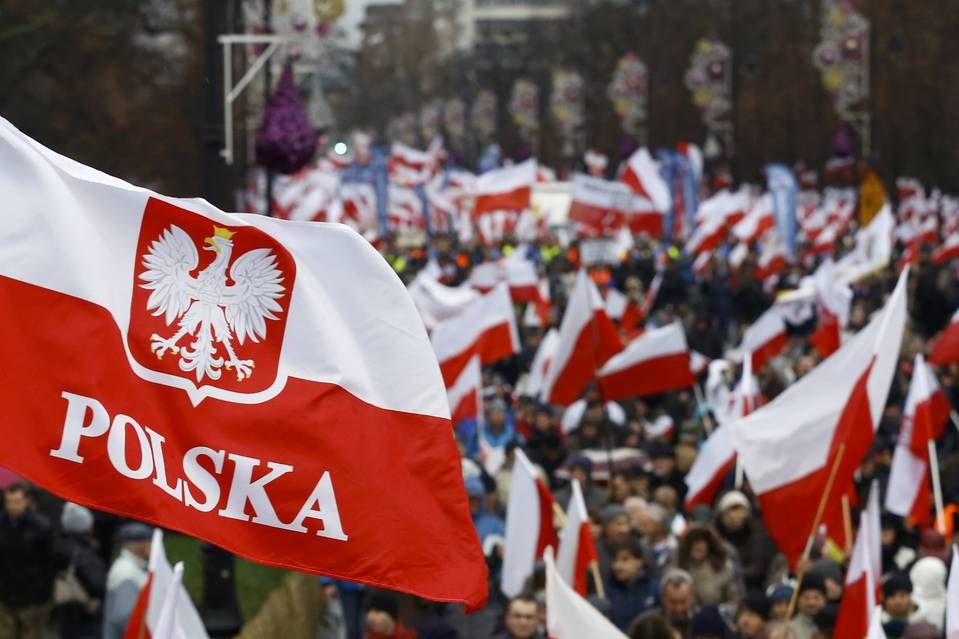
WARSAW’S WOES
Peace activist joins effort to stop Poland’s authoritarian turn

Lech Walesa, Nobel Prize winner and Poland’s first elected president, will join a protest today in Warsaw against the ruling Law and Justice Party (PiS) government.
Right-wing and Eurosceptic, PiS has faced backlash for its authoritarian leanings, especially after the legislature passed a trio of controversial laws that empowered the justice minister to replace Supreme Court justices, which critics say would irrevocably damage the rule of law. Facing the threat of losing EU voting rights, massive protests, and a public that opposed the measure by a 26 point margin, PiS-aligned President Andrzej Duda vetoed two of the reforms.
But the party remains popular. 40% of Poles say they would re-elect PiS in parliamentary elections if they were held today—twice the support commanded by their nearest rival, Civic Platform. Despite the judiciary reform defeat, PiS has successfully passed laws restricting protests, impeding press access to the parliament and blocking refugee resettlement. Additionally, leader Jaroslaw Kaczynski has vowed to continue the fight for judicial reform.
With PiS majorities in both legislative houses and elections more than 2 years away, Walesa and other liberal activists face long odds in their attempts to stop Poland’s anti-EU illiberal slide.
GHOST TRIAL
Ukraine’s ousted President Yanukovych trial to resume

Viktor Yanukovych’s trial for treason will resume today. The controversial former president won’t be present; his exact whereabouts are unknown, although he’s widely believed to be in Moscow. Claiming he was never formally notified of charges, Yanukovych has refused to participate in what he calls a “politically motivated” trial.
Those charges are linked to allegations that he facilitated Russian threats to Ukrainian sovereignty. The prosecution has submitted letters between Mr Yanukovych and Vladimir Putin, in which he urges Moscow to send troops in the midst of pro-European protests. The letters were sent in March 2014, shortly before Yanukovych’s exile and the annexation of Crimea.
Ukraine’s inner conflict between east and west goes well beyond this trial. Riding the pro-European wave from protests three years ago, members of parliament are confident about legislation ending visa-free travel for Russians. Dwindling pro-Russian sentiment in the east certainly doesn’t hurt their chances.
Accordingly, as the border conflict perpetuates, Kiev still expends resources in combatting Russian-backed separatists. A guilty verdict for Yanukovych could further dissipate peoples’ support for Russia.
MAYHEM IN THE MALDIVES
Lawmaker faces court as political turbulence persists

Maldivian MP Faris Maumoon’s trial for identity fraud continues today as each side submits arguments.
Maumoon was arrested last month for utilising the logo of President Abdulla Yameen’s Progressive Party of Maldives during an opposition press conference. The arrest was perceived as an attempt to silence a multiparty opposition aiming to “restore democracy” and combat Yameen’s absolutism.
Maumoon’s trial exemplifies how the president can erase dissent in parliament. The judiciary skews towards him, and government police have even limited Maumoon’s contact with counsel.
With the opposition subdued, Yameen can turn a profit by unilaterally giving 16 Maldivian islands to China. However, his dictatorial politics have geopolitical consequences. In China and India’s quest for regional hegemony, Malé’s preference for China strengthens the possibility of a Maritime Silk Road, threatening Indian security while boosting China’s economy.
If found guilty, Maumoon faces a maximum sentence of nine months. He is only the latest opposition lawmaker to be removed from office. As Yameen becomes more untouchable, China is poised to reap the benefits.

